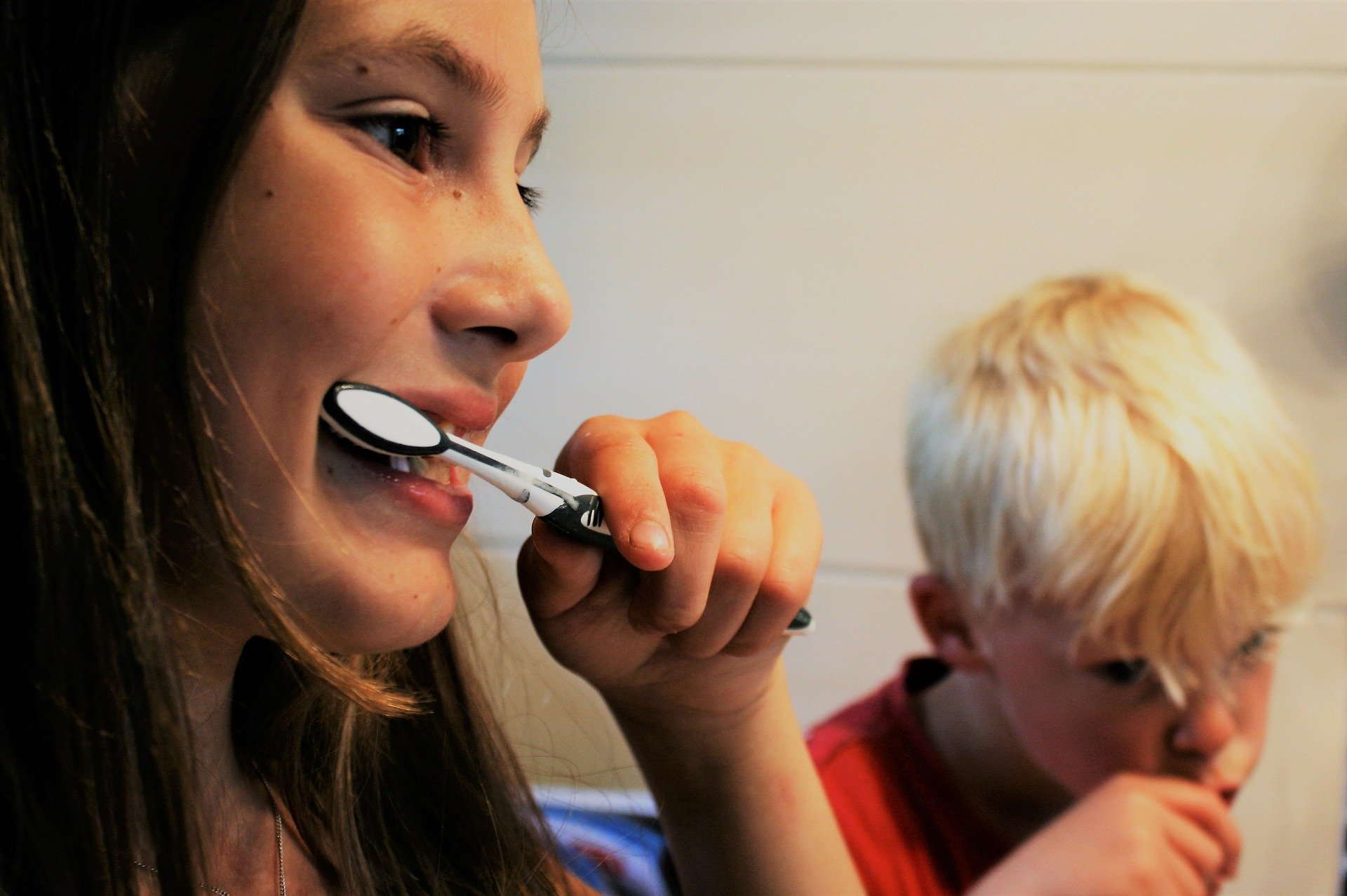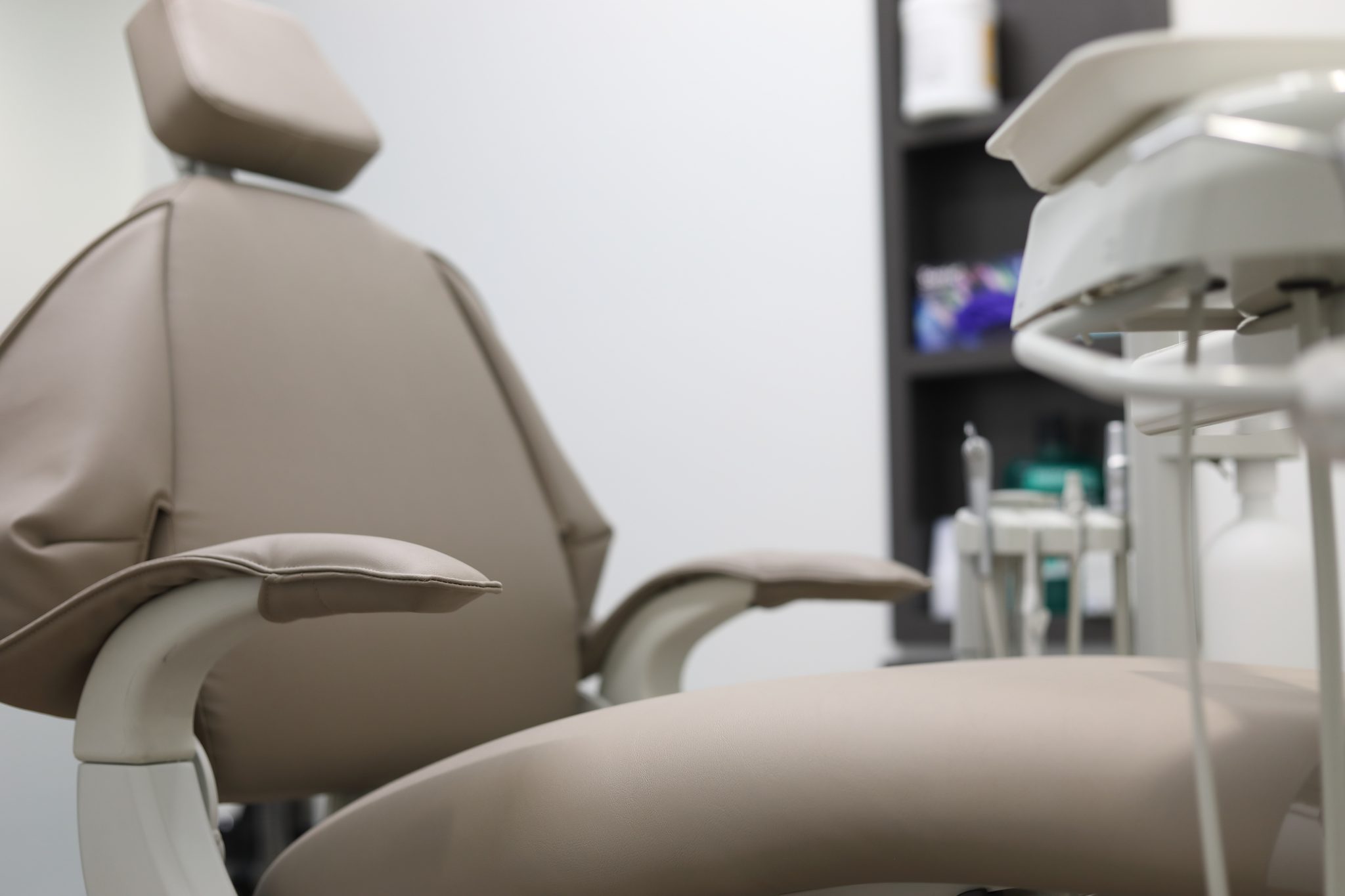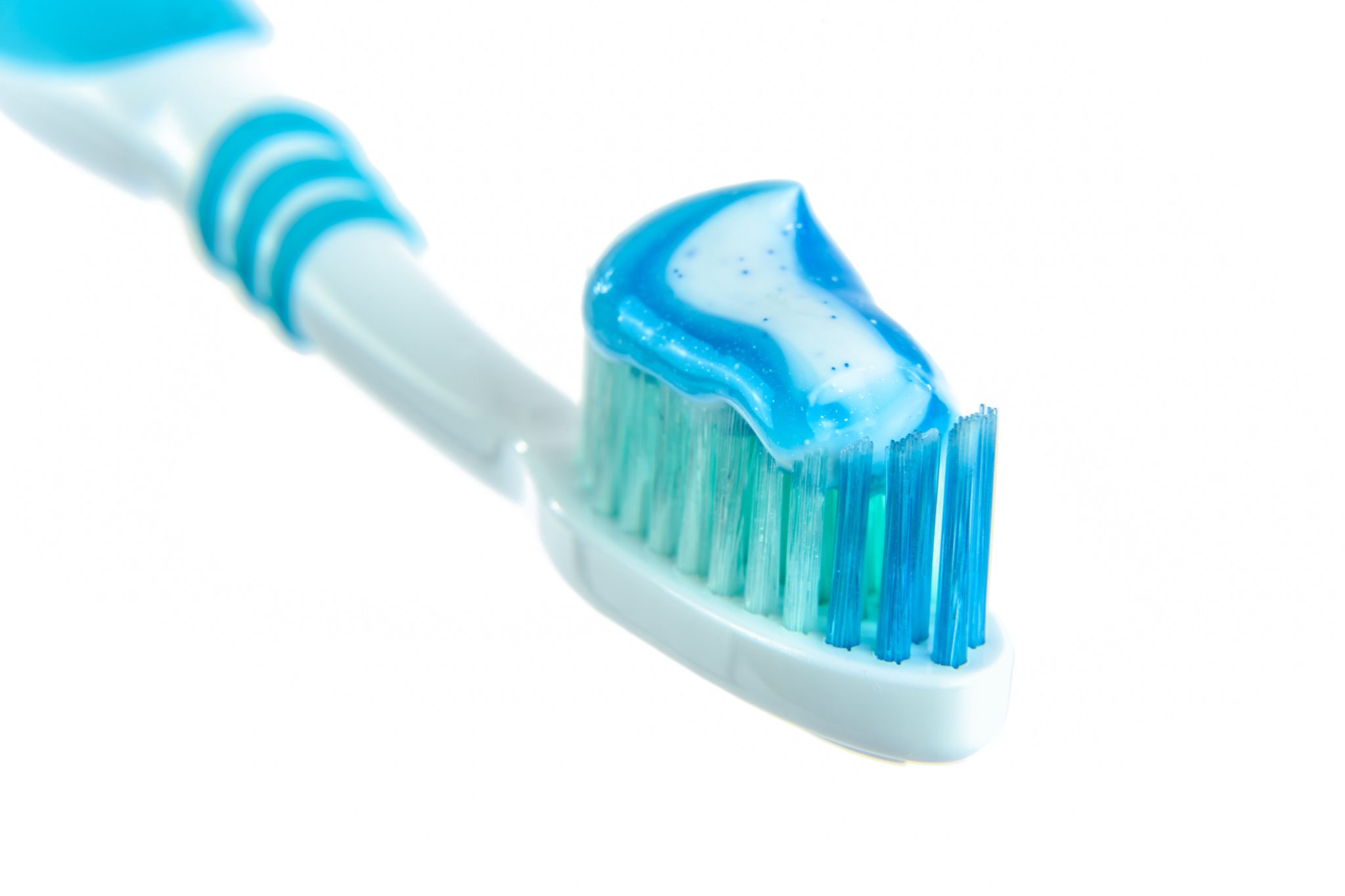
Do Children Really Need Root Canals?
January 14, 2020 ABC Children's Dentistry
When the pediatric dentist tells you that your child may need a root canal, your mind begins to race. You may have lots of questions or concerns.
- Are root canals safe?
- Do children need root canals?
- How can we avoid a root canal?
- What will happen during the procedure?
This guide will answer all those questions and more. Let’s start with understanding tooth decay, why root canals might be necessary, and how you can avoid them.
What is a Root Canal?
The National Institutes of Health perhaps did the best job of explaining root canals. Also known as “endodontic treatment” root canals are designed to remove bacteria and dead – or dying – tissue from deep inside the tooth.
The affected area is known as the “tooth pulp,” and it’s the most vital part of the tooth. Originating in the center of the tooth beneath the layer of enamel, the tooth pulp is comprised of living items, including blood vessels, large nerves, and connective tissue.
When the tooth pulp is infected, treatment is necessary; otherwise, the tooth may have to be pulled.
During a root canal, your dentist will use tiny tools to access the inside of the tooth, clean it and eventually place a crown over the top of the tooth.

What Causes Tooth Decay?
Also known as caries or cavities, tooth decay is caused by permanent damage to the outside of teeth in the form of tiny holes or openings. Many factors contribute to their creation, including bacteria, lack of good oral hygiene, refined carbohydrates and sugary food and drink, and frequent snacking.
Tooth decay, or cavities, are a common problem for children and adults. Anyone can develop tooth decay, even infants. If left untreated, they continue to grow. The holes sink deeper into more layers of teeth. This causes toothaches, infections, and may even lead to losing the tooth.
How Do You Prevent Tooth Decay in Babies?
The best way to prevent cavities (tooth decay) is to develop healthy brushing and flossing habits and not allowing the baby to sleep with milk in the mouth. Regular trips to the dentist are also an important part of avoiding tooth decay.
So, it’s important to establish a relationship between your child and the dentist at an early age and make regular visits. You should also make time to establish oral hygiene habits and practice proper brushing together until your child has mastered the skill.
What Does an Early Cavity Look Like?
You might be wondering how you’ll know if your child has a cavity. It can be difficult to avoid a more serious problem that might need a root canal if you can’t tell when your child has a cavity.
When a child has a cavity, it tends to look like a dark or cloudy spot on the tooth. You may see chalky white, yellow, or dark areas on the surface of the tooth.
Examine your child’s teeth regularly. If you see white patches on their teeth, it’s time to make an appointment with the pediatric dentist, as these can be an early sign of tooth decay. Another sign that your baby may need to see the pediatric dentist is swollen gum or cheeks and/or a cranky mood. If you see brown or white areas on your baby’s teeth, you can be sure that a cavity has started.
Are Root Canals Really Necessary for Children?
You may be wondering if children need root canals. They’re just for adults, right? No, root canals can be done on baby teeth or adult teeth. There are times when having a root canal is necessary to avoid losing a tooth. Here are some examples of cases where a root canal is a good and necessary choice:
- If the tooth is damaged by accident or injury
- If the tooth has become infected
- If an abscess, a pocket of pus, has formed
- If tooth loss would cause speech issues or eating problems
- If tooth loss would impede the full functionality of the jaws or tongue
- At What Age Can You Get a Root Canal?
Root canals can be done at any age. Most often root canals are needed when damage is extensive. If you think your child may need a root canal, you must discuss your concerns with your child’s pediatric dentist.
What are Some of the Signs That My Child May Need a Root Canal?
Among the more obvious signs that your child needs to be seen by a dentist immediately are:
- Constant unexplained pain
- Sensitivity to food temperatures (hot and cold)
- Swelling and redness around the affected tooth
- Unexpected looseness or mobility of the affected tooth
How Can I Avoid a Root Canal?
Root canals are a serious dental treatment. They’re only performed when necessary and usually as the result of extensive tooth damage. So, how can we avoid needing a root canal?
Here are 10 ways to avoid a root canal:
- Brush twice a day. Many adults and children only brush once a day, increasing the risks of cavities and, consequently, root canals.
- Floss every day. Not flossing is the same as taking a shower and not washing every part of your body. Gross, right? If your children don’t floss, they’re giving bacteria a great place to hide and multiply in your mouth. Not to mention, bad breath!
- Avoid hard candy. Hard candy can cause cracks in your teeth that let bacteria in and damage teeth root systems.
- If their teeth are already weak, be careful! Even healthy foods like crunchy fruits, vegetables (think apples, carrots, and celery), and nuts can crack weak teeth.
- Don’t eat ice. Chewing on ice can crack or break teeth or fillings if your kids have them. Once broken, bacteria can easily enter the tooth.
- Wear a mouthguard to bed. If your child grinds his teeth and is old enough, make sure he wears a nightguard. That way, his teeth are protected from breaks which can expose the root and lead to a root canal.
- Get a mouth guard for sports. Mouthguards aren’t just for football and hockey anymore. They’re a good idea for just about any sport!
- Stay away from acid. Don’t give your child acidic food and drinks like the kind found in soda and juices. These beverages are extra bad for teeth. They break teeth enamel and cover the tooth in sugary food for bacteria.
- Visit the pediatric dentist regularly. Regular checkups ensure that the dentist will find cracks early and repairs can be made before a root canal is needed.
- Don’t wait! If your child is experiencing tooth pain, don’t wait to visit the pediatric dentist. Tooth pain is a sign that something is wrong and ignoring it will only lead to more serious treatments later.
Extraction vs. Root Canal for Kids
With kids, there are many different factors to be considered before deciding on a root canal.
Questions to be answered include:
- How old is the child?
- Which tooth is damaged?
- How extensive is the damage?
- Is it a primary tooth?
If the damage is to a primary tooth, your pediatric dentist will consider the following questions before determining the best course of action:
- Will the child be losing the tooth soon?
- Is the tooth in a position that makes it critical for forming speech patterns and chewing properly?
- Is the primary tooth in question a necessary placeholder for permanent teeth that will be erupting soon?
If the tooth is critical to speech, chewing, or maintaining space for permanent teeth, a pediatric dentist may decide against extraction as losing this kind of primary tooth might cause more problems than it would solve. Losing a critical primary tooth too soon can cause remaining teeth to move into the open space. This can create problems later when permanent teeth erupt.
However, if the tooth is already loose, extraction is the better choice. After all, there is little reason to save a baby tooth that will soon be lost anyway.
What Happens During a Root Canal?
If your pediatric dentist determines that a root canal is the best option for your child, he will take time to explain the procedure and all that it entails. You might be surprised to learn that a root canal isn’t a long, painful procedure as it once was. With modern advances in dentistry, root canals can be completed quickly and comfortably.
Children don’t often need root canal procedures. However, one may be necessary in cases of trauma or injury to the tooth or in cases of serious tooth decay. Often an extraction is the better choice for managing childhood tooth damage, but sometimes a root canal makes more sense. In those cases, it’s important to know what to expect and be prepared, so that you can help your child through the procedure and avoid root canals in the future.
Root Canal FAQ
At what age can you get a root canal?
Dentists usually perform root canals on children ages 12 and older. However, root canals are sometimes needed for younger children depending on the damage to the tooth and which tooth needs a root canal procedure.
What is a root canal on a baby tooth called?
A root canal procedure, also known as a pulpectomy or a pulpotomy is where a dentist removes the infected nerve of the tooth or the tissue inside the crown of the tooth to prevent further decay.
Why do some root canals take 2 visits?
Root canals remove an infection from the damaged tooth. Some treatments involve at least two visits. The first dental visit relieves any tooth pain. On the second visit, the root canal is cleaned, disinfected, and filled in. Sometimes, time is needed between visits for any infection to heal before the area can be filled in.
Do you have to get a crown after a root canal?
The short answer is that it depends on the location of the tooth in your mouth and the extent of damage to the tooth caused by decay. Teeth found in the back of your mouth, such as molars and premolars, are primarily used for chewing. Often, these types of teeth require crowns. However, incisors or canine teeth commonly aren’t used when chewing, so they don’t always need crowns.
Why would a dentist do a root canal when my child’s primary (baby) teeth are still in?
You may be surprised to learn that saving a baby tooth can be just as important as saving a permanent tooth. When a baby tooth is lost early, it can interfere with your child’s speech development, ability to chew and the alignment of the developing permanent teeth.
Why do kids need root canals?
A root canal can help save primary teeth, also known as baby teeth, giving the teeth enough time to fall out on their own. If a primary tooth is lost too soon, it can lead to the development of bite or speech problems, trouble chewing, or even cause more serious problems when permanent teeth try to erupt later.
Do baby teeth have roots when pulled?
Baby teeth, or primary teeth, do have roots. Primary teeth at the back of the mouth often have several roots. Normally these roots are dissolved by the permanent teeth as they begin to erupt. This is the reason there is little blood when baby teeth are lost. If a baby tooth needs to be pulled, there will be roots and therefore more bleeding. However, any bleeding should stop quickly with applied pressure.
Does breast milk cause tooth decay?
Children who are breastfed or bottle-fed and fall asleep with milk in their mouth can get cavities.
Is pulpectomy the same as a root canal?
A pulpectomy procedure removes all the pulp from the crown of the tooth and the roots. This procedure is usually performed for children to save a badly damaged or infected primary tooth. That’s the reason it’s called a “baby root canal.” When permanent teeth are concerned, pulpectomy is just the first part of the complete root canal procedure.
How long do root canals last?
Root canals can last for a lifetime and they are successful 95% of the time. Applying the crown or filling quickly after the root canal procedure and maintaining good oral hygiene is the best way to ensure your root canal will be successful.
Are baby root canals painful?
Any cavity or tooth damage that involves a nerve can cause intense pain. Children are given pain medication during the procedure. Most children feel better after the procedure because the infection causing the pain has been removed.
Do you get stitches after a root canal?
No, root canal procedures do not require incisions or stitches.
For Compassionate and Fun Pediatric Dentist in San Diego, Call ABC Children’s Dentistry
A root canal is usually an in-office procedure, and local anesthesia is used to completely numb the affected tooth. The key to a successful procedure, though, is making sure your child is seen by your dentist as soon as possible.
To schedule an appointment for your child’s dental care, call ABC Children’s Dentistry here in San Diego.
Our number is 858-780-9794. Also, you can reach us online and via email.







